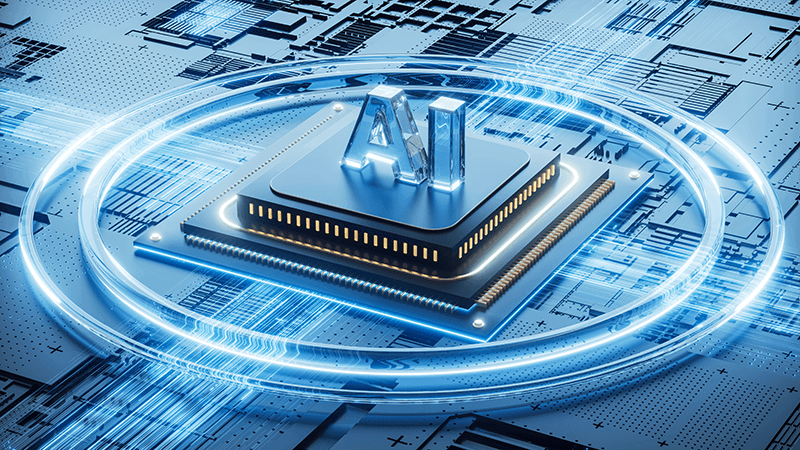End-to-end automation is no longer a distant vision—it’s a reality transforming how businesses operate across industries. From automating routine tasks to orchestrating complex workflows, this approach integrates entire processes, creating seamless and efficient operations. As technology evolves, the future of end-to-end automation promises even greater opportunities to innovate, optimize, and grow. Let’s explore the trends, benefits, and strategies that will shape this future and unlock its potential for your business
What is End-to-End Automation?
End-to-end automation involves automating processes from start to finish, connecting multiple systems, tools, and teams in a unified workflow. Unlike task-based automation, which focuses on specific steps, this approach looks at the entire process holistically, ensuring every stage is streamlined and efficient.
Example: Consider a financial services firm. End-to-end automation can manage loan applications—from customer inquiries to document verification, approval, and final disbursement—without manual intervention.
Core Components of End-to-End Automation:
Integration: Connecting various tools and systems to enable data flow and collaboration.
Intelligence: Leveraging AI and machine learning to make data-driven decisions.
Orchestration: Coordinating tasks across different teams and technologies.
Optimization: Continuously analyzing processes to improve efficiency and performance.
Key Trends Shaping the Future of End-to-End Automation
1. AI-Powered Workflows
Artificial Intelligence will be at the core of future automation efforts, enabling smarter decision-making and more adaptive workflows. AI can analyze vast amounts of data, identify patterns, and optimize processes in real-time.
Impact: AI-driven workflows will help businesses predict customer needs, streamline supply chains, and enhance risk management.
Example: In customer service, AI-powered chatbots can handle inquiries, escalate complex issues, and provide personalized recommendations.
2. Hyperautomation Revolution
Hyperautomation takes automation to the next level by combining RPA (Robotic Process Automation), AI, and machine learning to automate even complex processes. It’s not just about automating tasks but creating self-sustaining workflows that continuously improve.
Impact: Organizations can achieve greater agility, reduce operational costs, and improve service delivery.
Example: A retail company can use hyperautomation to manage inventory, process orders, and update pricing in real-time.
3. Seamless Integration Across Platforms
The future of automation will emphasize interoperability, where systems across different departments can communicate effortlessly. This will create a unified digital ecosystem that enhances collaboration and decision-making.
Impact: Real-time data sharing across platforms will lead to faster insights and more coordinated actions.
Example: An e-commerce platform integrating with logistics, payment gateways, and CRM tools to provide a seamless customer experience.
4. Human-Automation Collaboration
Automation is not about replacing humans but enhancing their capabilities. Future automation will focus on augmenting human skills, enabling employees to work smarter and focus on tasks that require creativity, critical thinking, and empathy.
Impact: Employees will have more time to innovate, strategize, and engage with customers, driving business growth.
Example: In marketing, automation tools can handle campaign management, while marketers focus on creating compelling content and strategies.
5. Predictive and Prescriptive Analytics
Automation will leverage predictive analytics to anticipate future trends and prescriptive analytics to recommend actions. This will help businesses stay ahead of the competition and make proactive decisions.
Impact: Companies can minimize risks, optimize resources, and capitalize on new opportunities.
Example: A manufacturing company using predictive analytics to forecast demand and adjust production schedules accordingly.
Benefits of End-to-End Automation
Increased Efficiency: Automating entire workflows reduces manual intervention, eliminates bottlenecks, and speeds up processes.
Cost Reduction: By optimizing operations and reducing errors, businesses can save on costs and reinvest in growth initiatives.
Enhanced Customer Experience: Faster service delivery, accurate data handling, and personalized interactions improve customer satisfaction.
Scalability: Automation enables businesses to scale operations without increasing headcount proportionally.
Compliance and Risk Management: Automated workflows ensure adherence to regulatory requirements and reduce the risk of human errors.
How to Prepare for the Future of End-to-End Automation
Map Out Your Processes
Identify key workflows that can benefit from automation. Start with processes that are repetitive, time-consuming, or prone to errors.Choose the Right Automation Tools
Select tools that offer flexibility, integration capabilities, and scalability. Look for platforms that align with your business goals.Invest in Employee Training
Empower your team to work alongside automated systems. Provide training on new tools and foster a culture of continuous learning.Monitor and Optimize
Automation is not a one-time setup. Continuously monitor performance metrics, gather feedback, and refine workflows to maximize ROI.Foster a Culture of Innovation
Encourage employees to explore new ways to leverage automation and contribute ideas for process improvements.
The Future is Now: Embrace End-to-End Automation
End-to-end automation isn’t just a trend—it’s a necessity for businesses looking to thrive in a competitive, fast-paced world. By integrating automation across your organization, you can unlock new levels of efficiency, innovation, and customer satisfaction. Ready to future-proof your operations? The time to act is now!






